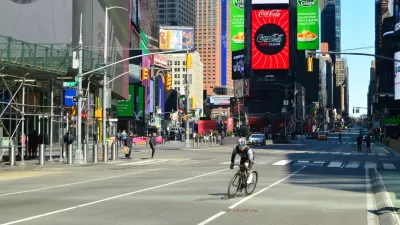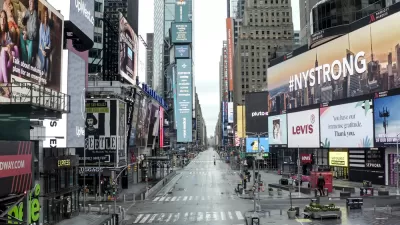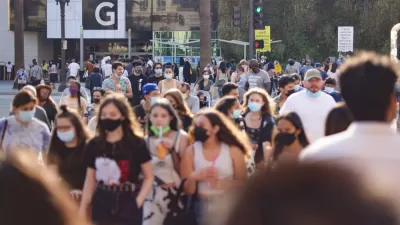A new book from the "Rethinking Streets" series identifies 25 quick redesigns cities can use to reconfigure streets for the realities of the COVID-19 pandemic.
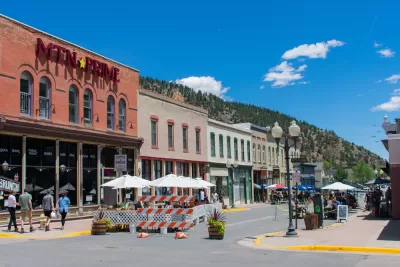
The introduction to the new book Rethinking Streets During COVID-19—authored by Marc Schlossberg, Rebecca Lewis, Aliza Whalen, Clare Haley, Danielle Lewis, Natalie Kataoaka, and John Larson-Friend—reads as follows:
During COVID-19 Re-allocating space on streets to accommodate new uses—particularly for walking, biking, and being—is not new. COVID-era needs have accelerated the process that many communities use to make such street transitions, however. Many communities quickly understood that the street is actually a public place and a public good that serves broader public needs more urgent than the free flow or the storage of private vehicles. This book captures some of these quick changes to city streets in response to societal needs during COVID, with two open questions: 1) what changes will endure post-COVID?; and 2) will communities be more open to street reconfigurations, including quick and inexpensive trials, going forward? We hope you look at the examples in this book and find ones that could work in your community and then use your voice to help implement your own local version of what you see here. Enjoy!
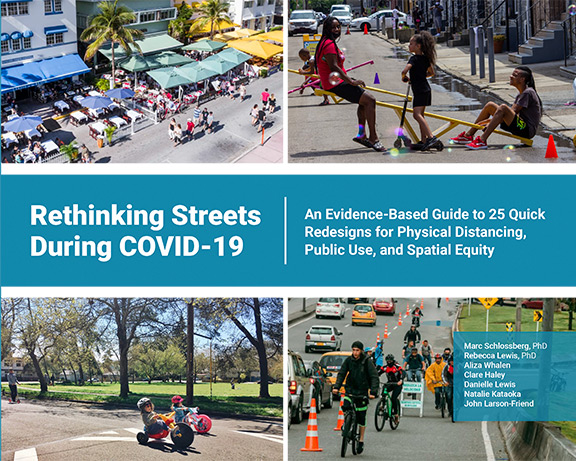
FULL STORY: Rethinking Streets During COVID-19

Alabama: Trump Terminates Settlements for Black Communities Harmed By Raw Sewage
Trump deemed the landmark civil rights agreement “illegal DEI and environmental justice policy.”

Planetizen Federal Action Tracker
A weekly monitor of how Trump’s orders and actions are impacting planners and planning in America.

The 120 Year Old Tiny Home Villages That Sheltered San Francisco’s Earthquake Refugees
More than a century ago, San Francisco mobilized to house thousands of residents displaced by the 1906 earthquake. Could their strategy offer a model for the present?

In Both Crashes and Crime, Public Transportation is Far Safer than Driving
Contrary to popular assumptions, public transportation has far lower crash and crime rates than automobile travel. For safer communities, improve and encourage transit travel.

Report: Zoning Reforms Should Complement Nashville’s Ambitious Transit Plan
Without reform, restrictive zoning codes will limit the impact of the city’s planned transit expansion and could exclude some of the residents who depend on transit the most.

Judge Orders Release of Frozen IRA, IIJA Funding
The decision is a victory for environmental groups who charged that freezing funds for critical infrastructure and disaster response programs caused “real and irreparable harm” to communities.
Urban Design for Planners 1: Software Tools
This six-course series explores essential urban design concepts using open source software and equips planners with the tools they need to participate fully in the urban design process.
Planning for Universal Design
Learn the tools for implementing Universal Design in planning regulations.
Clanton & Associates, Inc.
Jessamine County Fiscal Court
Institute for Housing and Urban Development Studies (IHS)
City of Grandview
Harvard GSD Executive Education
Toledo-Lucas County Plan Commissions
Salt Lake City
NYU Wagner Graduate School of Public Service


























